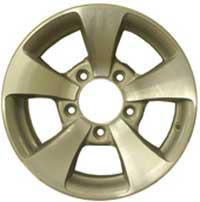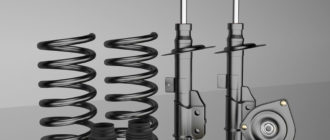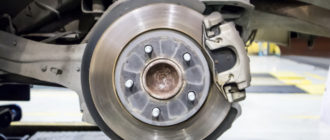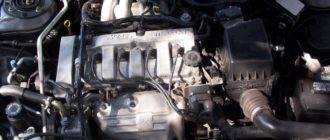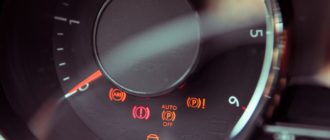The check engine light is a warning sign that indicates that there is an issue with your vehicle that requires immediate attention. Ignoring this sign can lead to costly repairs and even accidents. It is, therefore, important to understand the reasons why your check engine light is illuminated so that you can take the necessary measures to address the issue.
There are several common culprits that can trigger your check engine light. These range from simple issues such as a loose or damaged gas cap to more complex problems such as a faulty oxygen sensor. In this article, we will explore the seven most common reasons why your check engine light may be illuminated, and the steps you can take to fix the issues.
It is important to note that the causes of the check engine light may vary depending on the make and model of your vehicle. However, the following culprits are the most common across all vehicles. So, read on to uncover the mystery behind your illuminated check engine light!
By the end of this article, you will have a better understanding of the possible reasons why your check engine light is on, and the necessary steps you can take to fix the issue.
Buckle up and get ready to learn the 7 Reasons Your Check Engine Light is Illuminated!

source: https://cartreatments.com/check-engine-light-flashing-car-shaking/
Reason 1: Loose or Damaged Gas Cap
Your check engine light may illuminate due to a simple issue – a loose or damaged gas cap. Lately, modern vehicles are equipped with a complex emission control system that pressurizes and monitors the fuel tank’s vapor. The gas cap plays a crucial role in preventing gas vapors from evaporating into the atmosphere.
When a gas cap is loose or damaged, it allows fuel vapors to escape, affecting the car’s emission control system. The car’s computer detects a leak in the system and triggers the check engine light. To resolve the issue, ensure that the gas cap is tightened securely or replaced if it’s faulty.
Typically, a check engine code related to the gas cap issue will begin with the letter “P.” For instance, a P0440 code is a general EVAP system malfunction that can occur due to a loose or damaged gas cap. If the issue persists even after tightening or replacing the gas cap, the problem may lie in other EVAP system components such as hoses, sensors, or the charcoal canister.
Reason 2: Faulty Oxygen Sensor
Another common culprit that could cause your check engine light to turn on is a faulty oxygen sensor. This essential sensor measures the oxygen levels in your vehicle’s exhaust system and communicates with the vehicle’s computer to adjust the air-to-fuel ratio accordingly.
A faulty oxygen sensor can cause a variety of problems, including decreased fuel efficiency and an increase in harmful emissions. If left untreated, it can also cause damage to other parts of the vehicle, such as the catalytic converter.
One of the most common signs of a faulty oxygen sensor is a decrease in fuel efficiency. If you notice that your vehicle is using more gasoline than usual, it could be a sign that your oxygen sensor needs to be replaced.
- Other signs of a faulty oxygen sensor include:
- Check engine light turning on
- Rough running engine
- Stalling or hesitation when accelerating
- Failed emissions test
If you’re experiencing any of these symptoms, it’s important to have your vehicle inspected by a certified mechanic to diagnose and fix the issue before it causes any further damage to your vehicle.
Reason 3: Malfunctioning Catalytic Converter
A malfunctioning catalytic converter is another common reason why your check engine light may come on. This component is responsible for reducing the emissions that your car produces.
If it isn’t working properly, your vehicle won’t meet emissions standards, and you’ll need to get it fixed in order to pass an emissions test. In addition, a malfunctioning catalytic converter can lead to reduced fuel economy and decreased performance.
Signs of a malfunctioning catalytic converter include a decrease in acceleration, a rotten egg smell coming from the exhaust, and an illuminated check engine light. If you suspect that your catalytic converter is malfunctioning, it’s important to get it checked out by a mechanic as soon as possible to avoid further damage to your vehicle.
- Decreased acceleration
- Rotten egg smell from exhaust
- Check engine light illuminated
A malfunctioning catalytic converter can be caused by a number of factors, including engine misfires, cracked spark plugs, and damaged oxygen sensors. Regular maintenance and tune-ups can help prevent these issues and keep your catalytic converter functioning properly.
The Fourth Reason for Your Check Engine Light: Faulty Mass Airflow Sensor
If your car’s check engine light is illuminated, one possible culprit could be a malfunctioning mass airflow sensor. This sensor is responsible for measuring the amount of air that enters the engine and sends that information to the car’s computer, which then calculates how much fuel to inject into the engine to maintain the proper air-to-fuel ratio.
If the mass airflow sensor is faulty, it can result in the engine receiving incorrect information about the amount of air entering it. This can cause a range of issues, including lowered fuel efficiency, reduced engine performance, and potentially even engine stalling. In addition, a malfunctioning mass airflow sensor can cause emissions problems, which may cause your car to fail a state emissions test and could result in fines.
If your check engine light is on, it’s important to have your car diagnosed by a professional as soon as possible. Ignoring the issue could lead to increased damage and potentially even more expensive repairs down the line. By having the issue addressed promptly, you can get back on the road with confidence and avoid any further complications.
In addition to a faulty mass airflow sensor, there are several other common reasons your check engine light may be illuminated. These include issues with the oxygen sensor, a loose gas cap, a problematic spark plug, and more. By working with a trusted mechanic and addressing any issues as soon as they arise, you can keep your car running smoothly and avoid costly repairs in the future.
Reason 5: Dead Battery
The check engine light is often accompanied by other dashboard warnings, which can be difficult to decipher. However, if your battery is dead, the check engine light will remain illuminated even after the vehicle is turned off. This is because the check engine light is a part of the vehicle’s onboard computer system and is powered by the battery.
While a dead battery is often the result of a simple oversight, such as leaving the lights on, it can also indicate a larger problem with the vehicle’s charging system. This can include a faulty alternator or voltage regulator, which can cause the battery to fail prematurely.
If you suspect that your vehicle’s battery is dead or failing, it is important to have it checked by a qualified mechanic. They can help diagnose the problem and recommend the best course of action to get your vehicle back on the road.
- If your vehicle is experiencing other symptoms in addition to the check engine light, such as difficulty starting or dimming headlights, this could be a sign of a more serious electrical problem.
- Regular maintenance, such as checking battery connections and testing the charging system, can help prevent a dead battery from leaving you stranded.
Reason 6: Damaged Spark Plugs
Your car’s engine relies on spark plugs to ignite the fuel and air mixture in the combustion chamber. When these spark plugs become damaged or worn out, your engine will not run as efficiently and can lead to other issues such as misfires and poor fuel economy.
Common signs of faulty spark plugs include difficulty starting the engine, rough idling, and decreased acceleration. If you suspect your spark plugs may be the culprit for your check engine light, it is important to have them inspected and replaced if necessary.
In addition to normal wear and tear, damaged spark plugs can be caused by excessive heat, oil contamination, or improper gap size. It is important to have your spark plugs replaced on a regular basis according to your vehicle’s maintenance schedule to prevent further damage to your engine.
- Difficulty starting the engine
- Rough idling
- Decreased acceleration
Don’t ignore your check engine light – bring your vehicle in for a diagnostic check to determine the cause and address any necessary repairs.

source: https://www.buyacar.co.uk/cars/used-cars/1146/engine-management-light-10-reasons-why-check-engine-warning-light-is-on
Reason 7: Failed Ignition Coil
If you notice your check engine light is illuminated and your car seems to be running rough or misfiring, then a failed ignition coil could be to blame. Ignition coils are responsible for providing the spark that ignites the fuel in your engine’s cylinders, and when one fails, your engine may not run properly.
One sign of a failed ignition coil is a rough idle or hesitation while accelerating. You may also notice a decrease in fuel efficiency or a loss of power. If left unchecked, a failed ignition coil can cause damage to your catalytic converter, which can be costly to replace.
If you suspect a failed ignition coil is the culprit behind your check engine light, it’s important to have it diagnosed and replaced as soon as possible. Ignition coils can be diagnosed with a scan tool that checks for trouble codes, and replacement is a relatively simple process that can be done at home or at a mechanic.
- Signs of a failed ignition coil:
- – Rough idle or hesitation while accelerating
- – Decreased fuel efficiency
- – Loss of power
Overall, a failed ignition coil is a common cause of a check engine light illumination, but it’s also a relatively easy fix. By having it diagnosed and replaced quickly, you can save yourself the headache of more expensive repairs down the line.
The check engine light turning on indicates that there is a problem with the vehicle's system or components that affect emissions and performance. It is important to have the issue diagnosed and repaired promptly.
The most common reasons include a faulty oxygen sensor, loose or missing gas cap, catalytic converter issues, malfunctioning mass airflow sensor, and issues with spark plugs and wires.
While it may seem like you can still drive your car with the light on, it is not recommended. The issue may be causing damage to your vehicle and can also affect performance and fuel efficiency. It is best to have it looked at as soon as possible.
The cost can vary greatly depending on the specific issue and the make and model of the vehicle. It can range from simple and inexpensive fixes like tightening a gas cap to more complicated and costly repairs like replacing a catalytic converter. It is best to have a professional diagnose and provide an estimate for the repair.
If the issue is not addressed promptly, it can cause more serious and costly damage to your vehicle. It can also result in decreased fuel efficiency, reduced performance, and in some cases, cause your vehicle to fail emissions tests.
There are many possible reasons why the light may turn on and off, including intermittent issues with sensors or components, vibrations causing temporary issues, or issues with the electrical system. It is important to have the issue diagnosed by a professional.
Yes, many minor issues like a loose gas cap or a dirty air filter can cause the light to turn on. However, it is still important to address the issue promptly to avoid potential damage and decreased performance.
If the light turns on while you're on a road trip, it is best to find a reliable mechanic to diagnose and address the issue before continuing. In some cases, it may be safe to continue driving, but it's best to err on the side of caution and have it checked out as soon as possible.
